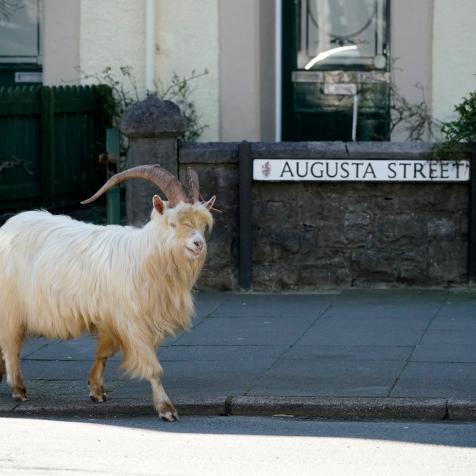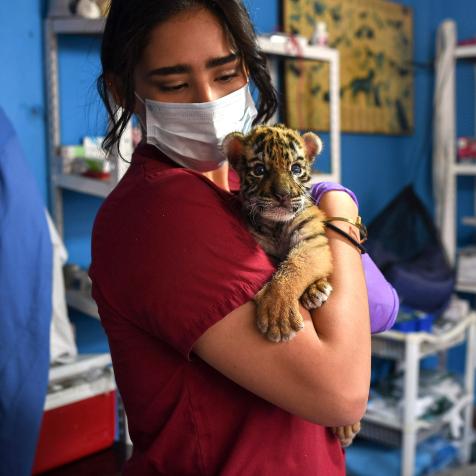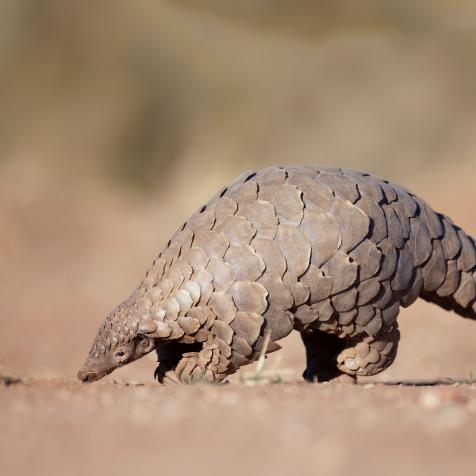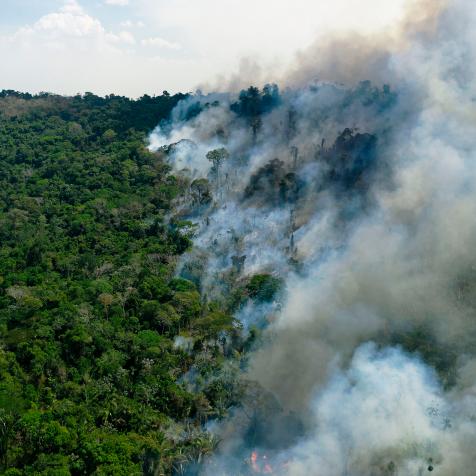
Fort Worth Star-Telegram
Animals Perished in Texas Winter Snowstorm
Hundreds of helpless animals remained unprotected and froze to death in light of Texas’ winter catastrophe.
The effects of Texas’ freezing temperatures from previous weeks are unfortunately still being accounted for. Not only were people and families suffering without food, water, electricity, and heat, so were animals, both exotic and livestock. From lemurs, wildebeests, and even a 58-year-old rescued chimpanzee named Violet — animals' lives were slowly frozen to death as the state was covered in sheets of ice and snow.
Some local fisherman said this is the worst fish kill they've seen in 100 years, but officials with the Texas Department of Parks and Wildlife said they do not have records that go back that far. https://t.co/2H2niXXaGO
— KCENNews (@6NewsCTX) March 2, 2021
As many know, it’s unexpected to reach such drastic temperatures in the south. Most animals living in Texas have evolved to withstand temperatures as warm as Africa, with blood vessels in their curled horns that allow heat to escape, according to The Washington Post. Francesco Artes, who raises animals at Valkyrie Ranch east of Austin, went on to explain “that works the exact opposite in the cold. The blood in the horns get cold and goes into their brains, and they were having seizures and dying.” Ethically so, Artes posted on social media and distributed over 4,000 lbs of wildebeest meat to those in need, including a dog rescue organization, to make sure nothing was wasted.
Breeders, ranchers, and animal caregivers alike were at their wit’s end, working day and night for over eight days to try and save their animals. A roadblock many ranchers faced was that once they found an animal, there wasn’t much rescuing they could provide due to the lack of necessities from losing power. A common theme, also seen among the animals, was desperation. Joe Reed, a local rancher of Nomad Hunts, said he saw ‘survival mode’ enacted within every animal that he came across. Another rancher had animals coming directly to him for food, which is considered ‘atypical’ for some species local to Texas.
Many ranchers and zoos had to get creative on how to keep their animals alive. The Snake Farm Zoo, located in New Braunfels, used hand and feet warmers in incubators to keep reptiles at a steady temperature. Luckily, this is one of few zoos whose 500 animals stayed safe during the winter storms. The Primary Primates Sanctuary located in San Antonio discharged about 60 primates to a neighbor’s home, using dog crates to house a “lemur room.”
A Texas Parks and Wildlife Department crowdsourcing project has collected more than 2,500 reports from observers using the iNaturalist app. https://t.co/V20FiYsqHy
— San Antonio Report (@SAReport) March 2, 2021
For many, this storm has caused years of damage to species and financially to businesses. Local rancher Joe Reed said, “we got hit pretty hard. It’s going to cost us ranchers millions of dollars, if not hundreds of millions. This is how we make our living.” The President of the Exotic Wildlife Association, Charly Seale, plans to align with the Texas agriculture committee to ensure the lost and/or perished exotic animals are treated within the same realm as livestock and crop losses. Andy Schwartz, the Texas Animal Health Commission’s executive director and state veterinarian, was transparent in the fact that the animals that survived could have “cold-related health concerns,” with detrimental effects that could last for some time.


















